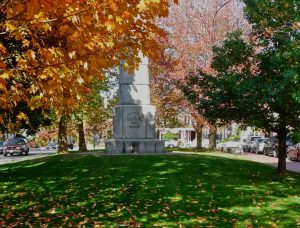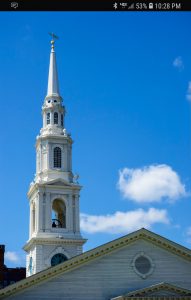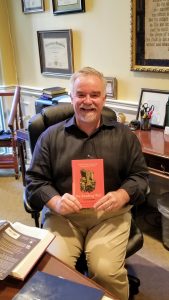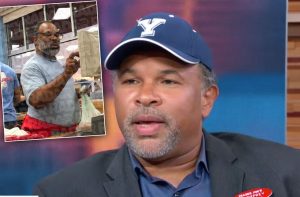Now that I have your attention …
Last night, as Pastor Steve headed off for the Philippines, I enjoyed the privilege of teaching our students. My assigned text was Proverbs 5. Here is the main theme which I developed for the kids: “Sex is like fire. In your fireplace, it keeps you warm. Outside your fireplace, it burns your house down!” I hope I captured the spirit and wisdom of that great chapter.
Needless to say, this is a subject which strikes close to home. For all of us, the lure toward ignoring God’s “guardrails of grace” (my term from last night) is an ever-present danger. In response to a question about the secret to getting beyond sexual temptation, an 80-year-old once remarked: “You’ll have to ask an 81-year-old.”
Please allow me to share my observations from many years as an observer of popular culture, and particularly of those ideas which tend to invade (or even be created by) our evangelical subculture. I have seen both of these mindsets alive and well. Both are wrong. Both severely miss God’s mark.
- Sex is a dirty word.
It’s a necessary evil at best. It shouldn’t be talked about in polite company. The goal of life is to wrestle our flesh to the ground, and to prevail over our carnal appetites. When it comes to our sexuality, there is no celebration – but only a problem with which to contend as long as we live. Sex is bad.
- Sex is everything.
Life is all about sex. Life is all about pleasure. Life is all about getting what I want, when I want it. When it comes to sexuality, whatever I feel, I ought to do – because, obviously, I am no stronger than my natural urges. The real secret to freedom is to pursue whatever kind of sex I crave. Sex is god.
Both mindsets are serious distortions of God’s truth. That makes both, lies.
Sex is one of God’s best gifts – it was given by Him for us. It was also given by Him for His glory. But never forget this: your sexuality is an important part of who you are, but it is not you. You are more than your sexuality. I feel the need to clarify that because our culture is presently trying to convince all of us that we “are” whatever we are tempted by. Thank God that’s absolutely not true (First Corinthians 10:13)!

We live in a world that has gone sexually insane. This is no time for silence on the part of God’s people! This is the time for us to shine brightly with an understanding and proclamation of human sexuality that is both Biblical and bold! This is the time for us to love and embrace all kinds of people trapped in every kind of sexual dysfunction and distraction … and to see them captivated by the wonder and joy of King Jesus! Whether they know it or not, every one of them already bears the image of their gracious Creator.
Whatever your sexual temptation, you are not alone. Because our world is broken and desperately in need of a Savior, you and I are battered every day by an onslaught of godless corruptions of the one thing which God designed to be the most beautiful representation of the love between Christ and His Church (Ephesians 5:31-32). Like everything else, the picture of sex has been distorted.
Will you join me in helping us all – students and octogenarians alike – recapture a vision of something beautiful?
… “Arise, my love, my beautiful one, and come away, for behold, the winter is past; the rain is over and gone. The flowers appear on the earth, the time of singing has come …” (Song of Solomon 2:10-12).
Pastor Charles








 Yesterday I received an Email from one of our church members who relayed a conversation she had at work. In a nutshell, her coworker was talking about “faith,” but it was apparent to our fellow church member that the “faith” being described was suspect at best. Because I believe that this issue of “faith” impacts so many of us who are engaging in the public square, I wanted to share with you an expanded version of my Email response which I penned yesterday. I hope that you find this helpful, as you seek to know Christ and make Him known.
Yesterday I received an Email from one of our church members who relayed a conversation she had at work. In a nutshell, her coworker was talking about “faith,” but it was apparent to our fellow church member that the “faith” being described was suspect at best. Because I believe that this issue of “faith” impacts so many of us who are engaging in the public square, I wanted to share with you an expanded version of my Email response which I penned yesterday. I hope that you find this helpful, as you seek to know Christ and make Him known. Last night I was captivated by Isaiah 2:1-5.
Last night I was captivated by Isaiah 2:1-5.
 I’m devouring
I’m devouring 
 Geoffrey Owens makes $11 an hour as a cashier? Friends, that might be the most honorable job on Earth – just like yours. As far as I’m concerned, shame on the shamers. We thought Bill Cosby was the example we ought to follow. Turns out it was Owens.
Geoffrey Owens makes $11 an hour as a cashier? Friends, that might be the most honorable job on Earth – just like yours. As far as I’m concerned, shame on the shamers. We thought Bill Cosby was the example we ought to follow. Turns out it was Owens.


Recent Comments